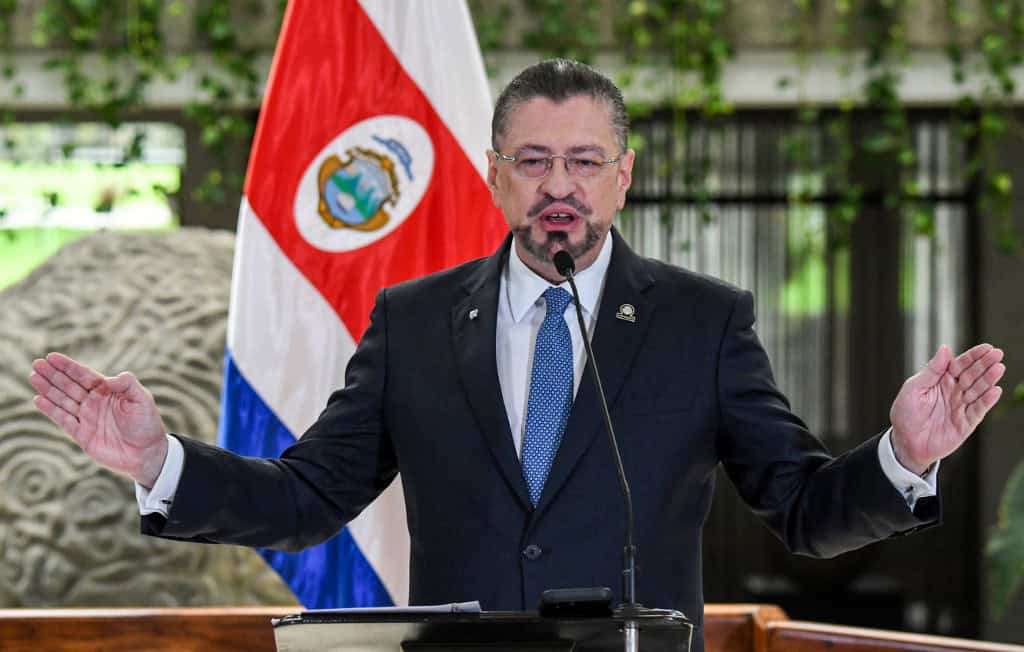Costa Rican President Rodrigo Chaves announced that he will skip the congressional plenary session next Monday set to decide on stripping his immunity in a corruption case. He called the process a “judicial coup d’état” and said attending would only give it legitimacy.
The session comes after a special congressional commission recommended lifting Chaves’ immunity. Prosecutors accuse him of influence peddling by pressuring a communications firm hired by the presidency to pay $32,000 to his former image advisor, Federico Cruz. The payment allegedly tied to a $400,000 contract funded by the Central American Bank for Economic Integration through what investigators call an improper process.
Chaves made the announcement during his weekly press conference. “I will not lend myself to giving a veneer of legitimacy to the shameful spectacle staged by (Congress President) Rodrigo Arias with some lawmakers, the judiciary, and other outside influences,” he said. He described the case as a “show to delegitimize a government that the people elected and overwhelmingly support today.”
This marks the first time a sitting Costa Rican president faces such a vote. The Supreme Court approved the request to lift immunity on July 1, sending it to Congress. A three-member legislative panel heard Chaves’ defense in August, where he denied the charges and accused the attorney general and Supreme Court magistrates of political revenge.
If at least 38 of the 57 lawmakers vote in favor next Monday, Chaves loses his immunity but keeps his office until his term ends in 2026. He cannot run for re-election due to constitutional limits. Chaves told reporters the case “doesn’t have a leg to stand on” and called it a “setup.” He plans to address the nation afterward but not appear before Congress.
The president’s combative style has defined his tenure since taking office in 2022. He often criticizes the judiciary, Congress, prosecutors, and media in sharp terms. Supporters see him as a fighter against a corrupt elite, while critics view his attacks as threats to democratic institutions.
Prosecutors charge Chaves with “concusión,” or abuse of power for personal gain, which carries up to eight years in prison. Witnesses include his former communications minister, Patricia Navarro, and businessman Christian Bulgarelli. The Central American Bank investigated internally and shared findings with Costa Rican authorities.
Chaves’ party holds only nine seats in Congress, dominated by opposition groups. Other probes target him for irregular campaign financing and election interference ahead of the February 2026 vote. Despite the cases, polls show strong public support for his administration.






